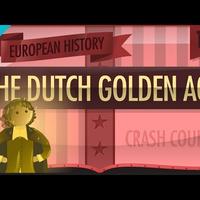Dutch Golden Age: Crash Course European History #15 (2)
It aroused high passions over enhancing the role of the stadtholder and bringing William
of Orange to become perhaps stadtholder for life.
If you're wondering why the Dutch soccer team wears orange, by the way, that's why.
In 1672 an angry mob, believing that William's rise was being prevented by brothers and high
officials Johan de Witt and Cornelis de Witt proceeded to lynch, flay, and cannibalize
those brothers.
The fight over how concentrated power should be, and who should have that power, clearly
wasn't over.
So even as it continued to prosper, the Dutch Republic was profoundly politically divided
by the end of the 17th century.
Meanwhile, Great Britain, its rival on the seas, had more or less resolved its political
questions and created the ground rules for an effective monarchy and its relationship
with the commercial classes.
and that meant the Dutch Golden Age receded.
As golden ages always do.
England meanwhile, was rising again--although only temporarily.
Next time we'll see how eastern Europe was faring during the seventeenth century.
Thanks for watching; I'll see you then.
[1] Quoted in Geoffrey Parker, Global Crisis:
War, Climate Change and Catastrophe in the Seventeenth Century (New Haven: Yale University
Press, 2014), 237.

